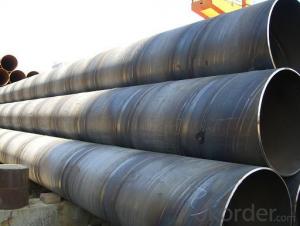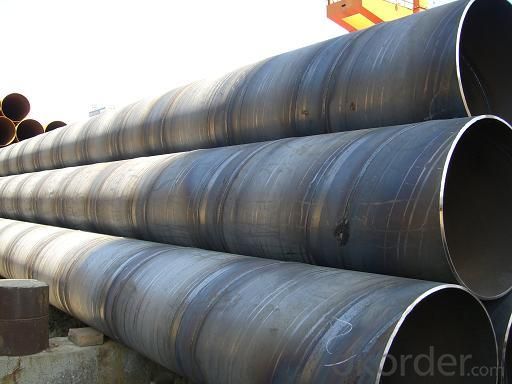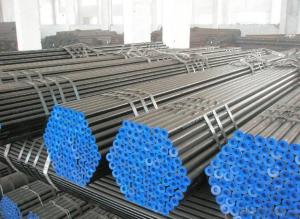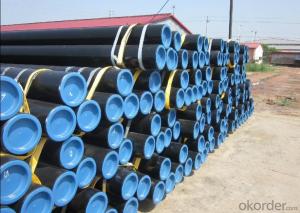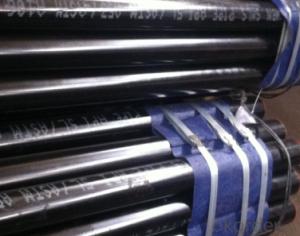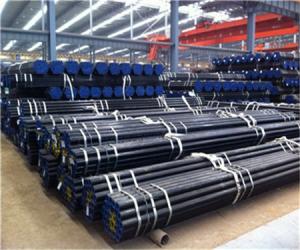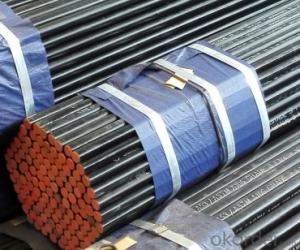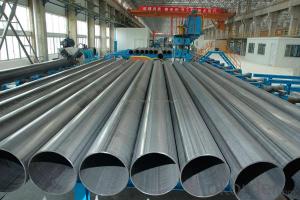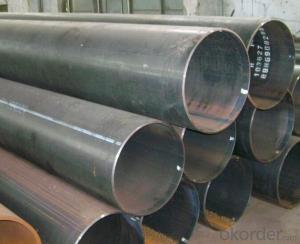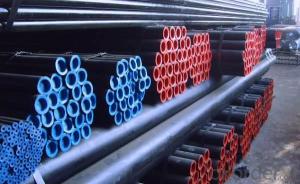SSAW STEEL PIPE ASTM A53 ASTM A106
- Loading Port:
- China Main Port
- Payment Terms:
- TT OR LC
- Min Order Qty:
- -
- Supply Capability:
- -
OKorder Service Pledge
OKorder Financial Service
You Might Also Like
Packaging & Delivery
Packaging Detail: | standard export packing or as customer's requirement |
Delivery Detail: | within 10 - 30 days |
Specifications
Spiral Welded Steel Pipes and Tubes
1.Material:Q195-Q235
2.Length:1-12m
3.WT:1.0-14mm
4.O.D.:20-273mm
Spiral Welded Steel Pipes and Tubes
Product Description:
1.Material : Q235,Q345,L245,L290,L360,L415,L450,L485,GrB,X42,46,X52,X56,X60,X65,X70,X80,X100
2,Standard: SY/T5037-2000,GB/T9711-2011,API Spec 5L PSL1/PSL2,ASTM A252\A53,ISO3183,DIN17172,EN10217,JIS G3457,AWWA C200,ASTM A139,ASTM A671,ASTM A672
3.Wall thickness: 3.0mm-30mm
4.Outer diameter: φ168mm-3020mm
5,Length: 5m-12m or as your requirement
6,Corrosion protection standard: DIN30670,DIN30671, AWWAC210, AWWA C203, SY/T0413-2002,SY/T0414-2002
7,Application: Oil, gas, natural gas, water pipe, thermal electricity pipe, steel structure engineering, etc
Q195-q345 Material Steel Pipe's Materials
Elements | Chemical Compsition% | Mechanical Property | ||||||
| C% | Mn% | S% | P% | Si% | Yield Point (Mpa) | Tensile Strength(Mpa) | Elongation |
Q195 | 0.06-0.12 | 0.25-0.50 | <0.050 | <0.045 | <0.030 | >195 | 315-430 | 32-33 |
Q215 | 0.09-0.15 | 0.25-0.55 | <0.05 | <0.045 | <0.030 | >215 | 335-450 | 26-31 |
Q235 | 0.12-0.20 | 0.30-0.70 | <0.045 | <0.045 | <0.030 | >235 | 375-500 | 24-26 |
Q345 | <0.20 | 1.0-1.6 | <0.040 | <0.040 | <0.55 | >345 | 470-630 | 21-22 |
- Q: How are steel pipes used in tunnel construction?
- Steel pipes are commonly used in tunnel construction for various purposes such as drainage, ventilation, and support. These pipes are installed to facilitate the removal of water from the tunnel, ensuring a dry working environment. They also serve as conduits for supplying fresh air and removing exhaust fumes. Additionally, steel pipes are utilized as structural supports, providing stability and reinforcement to the tunnel walls and ceilings.
- Q: How do steel pipes handle ground settlement?
- Steel pipes are known for their strength and durability, making them capable of handling ground settlement effectively. Due to their rigid nature, steel pipes are resistant to deformation or collapse caused by uneven settling of the ground. This makes them a reliable choice for underground installations, as they can withstand and navigate through the changes in the ground surface without compromising their structural integrity.
- Q: How are steel pipes inspected for compliance with industry standards?
- Steel pipes are inspected for compliance with industry standards through various methods, including visual examination, dimensional measurements, non-destructive testing, and mechanical testing. Trained inspectors carefully inspect the pipes to ensure they meet the required specifications, such as wall thickness, diameter, and surface quality. Non-destructive testing techniques like ultrasonic testing or magnetic particle inspection are used to detect any internal or surface defects. Mechanical tests, such as tensile or bend tests, are performed to evaluate the pipe's strength and ability to withstand pressure. These inspections help ensure that steel pipes meet the necessary industry standards and are fit for their intended use.
- Q: What are the different types of steel pipe coatings for underground applications?
- There are several types of steel pipe coatings used for underground applications, including fusion bonded epoxy (FBE) coating, three-layer polyethylene (3LPE) coating, three-layer polypropylene (3LPP) coating, and coal tar enamel (CTE) coating. Each of these coatings provides different levels of protection against corrosion and abrasion, ensuring the longevity and durability of the steel pipes in underground environments.
- Q: Can steel pipes be used for water distribution networks?
- Yes, steel pipes can be used for water distribution networks. Steel pipes are commonly used for water distribution due to their durability, strength, and resistance to corrosion. They can handle high pressure and are able to withstand extreme weather conditions, making them suitable for long-term use in water distribution networks.
- Q: What are the dimensions of a standard steel pipe?
- The dimensions of a standard steel pipe can vary depending on the specific application and industry standards. However, common dimensions include outer diameter (OD) and wall thickness (WT). For instance, a standard steel pipe might have an outer diameter ranging from 0.84 inches to 24 inches, and a wall thickness varying from schedule 5 to schedule 160.
- Q: 25 of the steel pipe with 6 in charge of what is the difference?
- Outer diameter representation of steel pipe:When the design is nominal diameter DN means diameter, should be nominal diameter DN and the corresponding product specifications table. Specification for unplasticized polyvinyl chloride pipes for building drainage, de (nominal outer diameter) * e (nominal wall thickness), (GB, 5836.1-92), polypropylene (PP) pipe for water supply, specifications by de * e (nominal outer diameter * wall thickness).
- Q: How long do steel pipes last?
- The lifespan of steel pipes can vary depending on several factors, including the quality of the steel used, the environment in which they are installed, and the maintenance and care given to them. Generally, steel pipes are known for their durability and longevity. With proper installation and regular maintenance, steel pipes can last for several decades, often exceeding 50 years. However, it is important to note that external factors such as corrosion, exposure to extreme temperatures, and chemical reactions can significantly affect their lifespan. Regular inspections, timely repairs, and protective coatings can help extend the life of steel pipes, ensuring their reliability and functionality for many years.
- Q: How are steel pipes used in the transportation of liquids and gases?
- Steel pipes are used in the transportation of liquids and gases due to their durability, strength, and resistance to corrosion. They are commonly used in industries such as oil and gas, water supply, and chemical processing. Steel pipes ensure the safe and efficient movement of fluids over long distances, as they can withstand high pressure and extreme temperatures. Additionally, their seamless construction minimizes the risk of leaks, making them essential for transporting various liquids and gases.
- Q: What is a tight steel tube?
- JDG pipe is the replacement of traditional PVC and SC pipes and other traditional wire conduits. It is a breakthrough in the field of building electrical field using new materials and technologies. The JDG pipe adopts the cross connecting ground wire of galvanized steel pipe and thin-wall steel pipe, overcomes the defects of complicated construction and large construction loss of common metal pipe, and solves the problems of poor fire resistance and difficult grounding of PVC pipe. Because the JDG pipe material is more expensive than the ordinary pipe material, it is more used in the construction, such as comprehensive wiring, fire protection wiring and so on.
Send your message to us
SSAW STEEL PIPE ASTM A53 ASTM A106
- Loading Port:
- China Main Port
- Payment Terms:
- TT OR LC
- Min Order Qty:
- -
- Supply Capability:
- -
OKorder Service Pledge
OKorder Financial Service
Similar products
Hot products
Hot Searches
Related keywords
